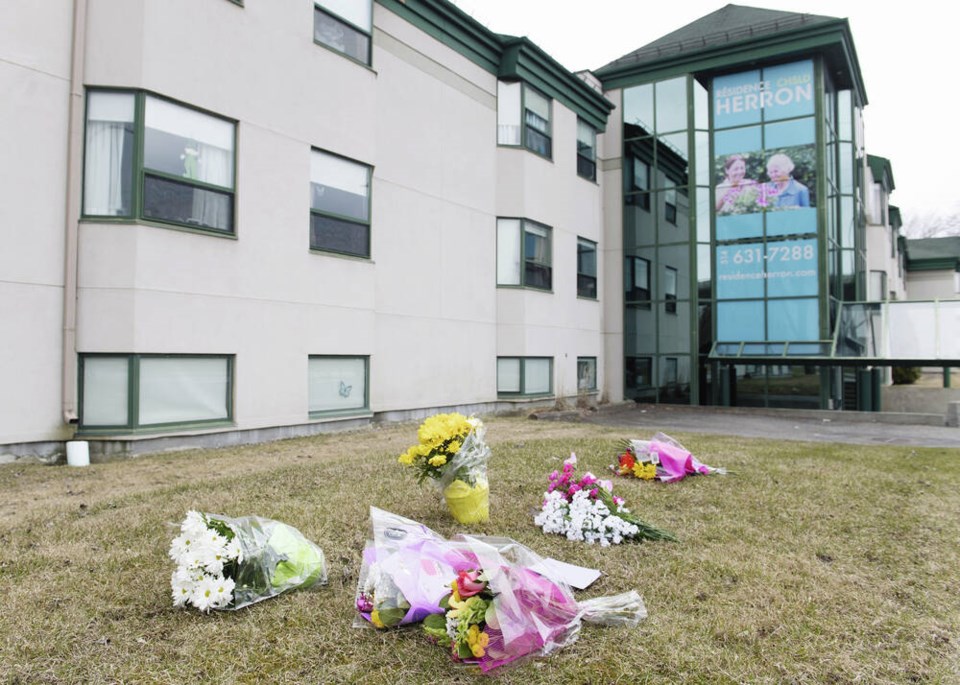A series of research papers published in the British Medical Journal excoriate Canada’s handling of the COVID pandemic, and in particular, the dreadful loss of life in long-term care facilities (LTCs).
By December 2021, residents in these facilities represented only three per cent of COVID cases, country-wide, yet they accounted for nearly half the overall deaths. That was one of the worst LTC fatality rates in the world.
The research papers put this failure down to inadequate attention to the growing complexity of ailments suffered by elderly residents, inadequate staffing, and near total lack of integration with other health-care services.
The picture is slightly less bleak across the population as a whole, with Canada’s death rate falling toward the lower end of the G-20 countries. This is due, in part, to remarkably low numbers in the Atlantic provinces.
COVID death rates were tiny in that part of the country, well below 50 per 100,000 population. By comparison, the fatality rate in Quebec was around 140, and still high in Alberta, Ontario and Saskatchewan.
B.C. comes out well in these standings. Leaving aside the Maritimes, our province had the lowest death rate in the country. While some of that may be due to geography — being at the far end of the country may have isolated us from the worst — this is also a credit to our health-care system.
B.C.’s regional health authorities were effective from the start in moving COVID patients from over-worked ICUs in the north to hospitals with more capacity in the south.
We also had one of the highest COVID vaccination rates in the country, well above neighbouring Alberta, which suffered low vaccination take-up early in the outbreak.
But the overwhelming message is that Canada has no integrated health-care system. We had 10 provinces and three territories each making it up as they went along. Each decided what preventive measures should be used — for example, whether schools and churches should be closed, when masks should be required — and each failed to communicate with the others.
It fact, it’s worse than that. In some cases, Ontario for example, even within the province there was no central direction as to what should be done. Instead each of the larger cities ran its own public health department, and chose for itself how to proceed.
Making matters worse, before the outbreak the federal government failed miserably to read the warning signs that the country was in no shape to fight a serious pandemic.
The lessons of earlier epidemics, such as the SARS outbreak in 2003, went unlearned.
What then should be done?
First, a full-scale national inquiry is needed, to examine what went wrong and how to correct it.
After Canada’s disastrous mishandling of the AIDS outbreak in the 1980s, a tainted blood inquiry was set up with the authority to identify evidence of misconduct.
Subsequently criminal charges were brought against two senior managers at Health Canada, the head of the Red Cross’s blood program, and a pharmaceutical firm.
No less should be done here. The COVID virus has killed twice as many Canadians as AIDS, while the mismanagement of LTC facilities in Ontario and Quebec exceeded any of the tainted blood failures.
Second, a stand-alone central agency should be set up with power to impose a standardized regime of public health measures across all 10 provinces in case of an epidemic.
It might appear we currently have such an agency — the Public Health Agency of Canada — but its scope is strictly limited. We saw how that worked out.
That another epidemic lies somewhere in our future is not in dispute. It is essential that this time we be ready, for history teaches the price of forgetting the past.
>>> To comment on this article, write a letter to the editor: [email protected]



